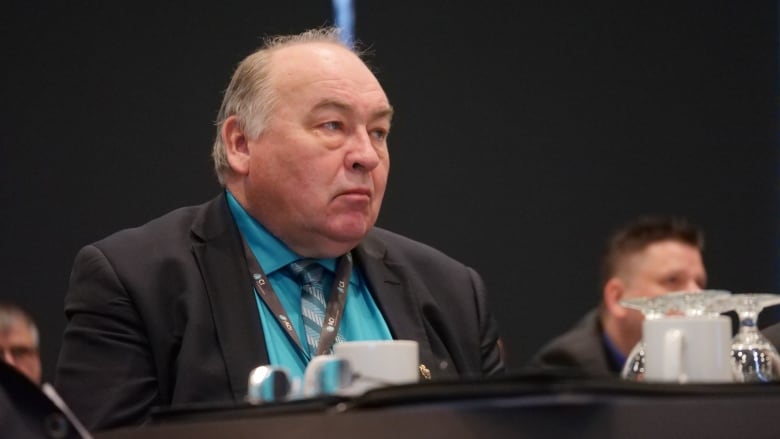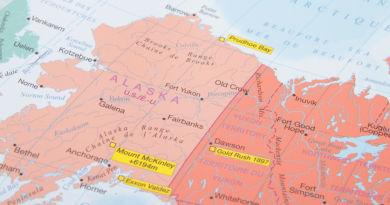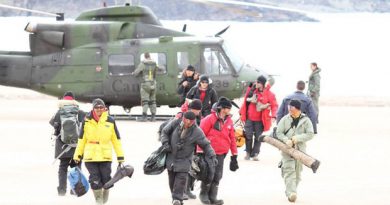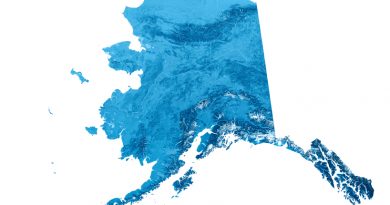Premier of Northern Canadian territory frustrated by slow oil and gas development

Bob McLeod says his “patience is wearing thin” over the slow rate of investment in northern oil and gas.
The N.W.T. premier gave his remarks in a keynote speech at the Arctic Oil and Gas Symposium, a gathering of oil and gas industry representatives in Calgary Wednesday.
The speech was infused with frustration over the pace of oil and gas development in the North, at times taking aim at the media, the federal government and “southern, urban Canadians.”
“You’d think that the relationship between resource development, and socioeconomic well-being would be well known in this country,” read McLeod’s prepared remarks.
“There is no question that provinces in this country have each, at some point in time, benefitted from federal government investment,” he said. “Now is the time for that same promise to be fulfilled in the Northwest Territories.”
McLeod identified three “priority projects” for resource development in the territory — a year-round “road to riches” in the Slave Geological Province, an expansion of the Taltson hydroelectric system, and an all-season Mackenzie Valley Highway.
A ‘cautionary tale’
McLeod said past investments in infrastructure, such as the Mackenzie gas pipeline, moved too slowly for industry, which “had every right to move on.”
“This was a waste of an opportunity that the whole country could be benefitting from today,” said McLeod, calling the process a “cautionary tale” about “overly complicated management regimes.”
McLeod said he would “keep pushing to see these projects realized … now, and not in another 30 years.”
Oil and gas contributed just $7.9 million to the Northwest Territories economy in 2017, according to the NWT Bureau of Statistics — an amount McLeod said was “on par” with agriculture and arts and entertainment.
In 2016, the federal government introduced a moratorium on new offshore oil and gas licenses in the Arctic, restricting the opportunities for drilling in the North.
Media, governments guilty of ‘eco-colonialism’
McLeod said “all too often … Indigenous people … are only valued as responsible stewards of their land if they choose not to touch it. He called this “eco-colonialism.”
“It is oppressive and irresponsible to assume that Indigenous northerners do not support resource development,” he said.
McLeod said the “social license” for resource development was greater in the N.W.T. than anywhere else in Canada, thanks to “one of the richest revenue sharing agreements of its kind in Canada.”
“This is what real reconciliation looks like,” he said.
McLeod also pointed to three pieces of legislation — the Oil and Gas Operations Act, the Mineral Resources Act and the Petroleum Resources Act — as indications his government is modernizing regulations around resource exploration.
Without changes, McLeod said, northern industry will continue to “feel left out from the national economic equation.”
“These fears are not just my own,” he said. “They are shared by families who are struggling with high costs of living and fewer prospects for good paying jobs.”
Related stories from around the North:
Canada: Territorial government and western Inuit want to develop their own gas resources in Arctic Canada, CBC News
Finland: Stricter mining regulations and oversight needed in the Arctic, Finnish report says, Yle News
Norway: Norway ramps up oil and gas production in Arctic despite looming climate crisis, The Independent Barents Observer
Russia: Large ore mine to be developed in remote Russian Arctic, The Independent Barents Observer
Sweden: Why some northerners will welcome Sweden’s relaxed shoreline protection rules, Radio Sweden
United States: Alaska: enviro group says U.S. Interior Dept. hid gaps in ANWR science, Alaska Public Media



